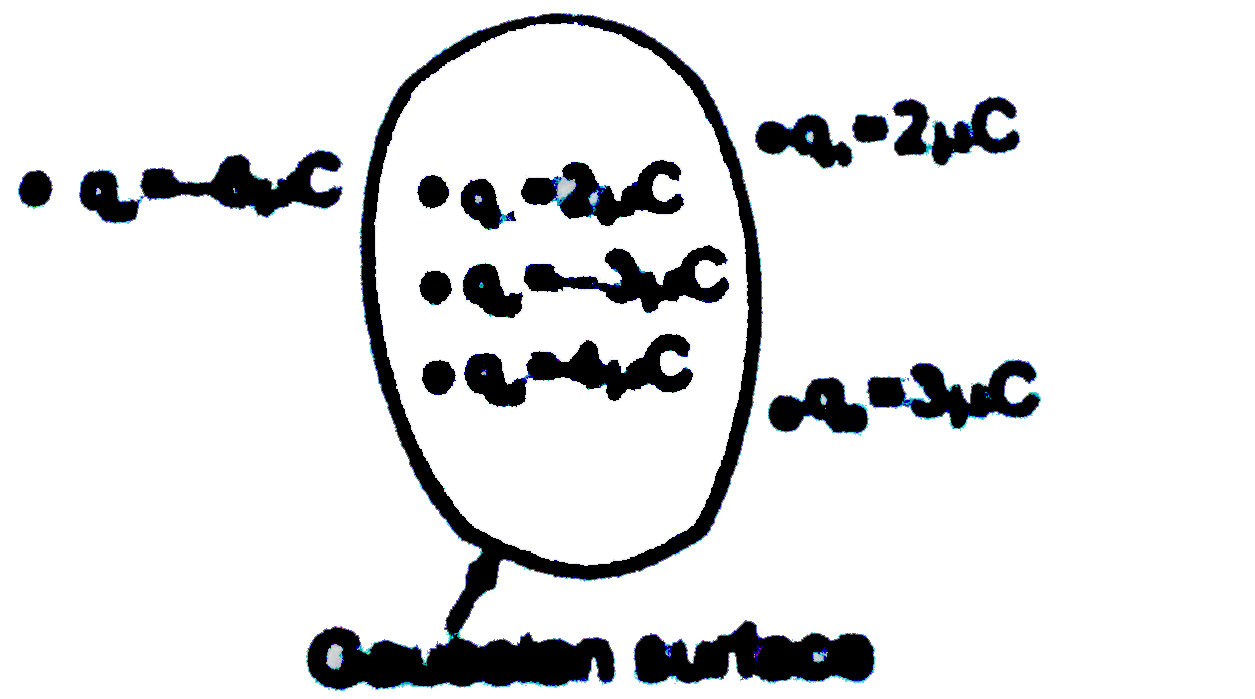Does Electric Flux depend on the size of the Gaussian surface ?
No.
Sometimes.
Yes.
Rarely.
The correct Answer is:A
Electric Flux only depends upon the amount of charge enclosed by Gaussian surface.
Similar Questions
S1: When a positively charged particle is released in an electric field , in its subsequent motion,it may or may not move along the electric field line passing through the point it has been released.
S2: In electrostatic, conductors are always equipotential surfaces.
S3: The flux through a closed Gaussian surface is non-zero. The electric field at some point on the Gaussian surface may be zero.
View SolutionAssertion (A) A charge q is placed on a height h/4 above the centre of a square of side b . The fluk associated with the square is independent of side length.
Reason (R ) Gauss 's law is independent of size of the Gaussian surface.
View SolutionGauss's law and Coulomb's law , although expressed in different forms , are equivalent ways of describing the relation between charge and electric field in static conditions . Gauss's law is ε0ϕ=qencl,when q(encl) is the net charge inside an imaginary closed surface called Gaussian surface. The two equations hold only when the net charge is in vaccum or air .
If the charge q3 and q4 are displaced (always remaining outside the Gaussian surface), then consider the following two statements :
A: Electric field at each point on the Gaussian surface will remain same .
B: The value of ∮→E.d→A for the Gaussian surface will remain same.
View SolutionFind the force exerted by the water on a 2m2 plane surface of a large stone placed at the bottom of a sea 500 m deep. Does the force depend on the orientation of the surface? Neglect the size of the stone in comparison to the depth of the sea.
View SolutionThe diffusion rate depends on the size of the substances
View SolutionFind out flux through the given Gaussian surface.

View SolutionAn infinite, uniformly charged sheet with surface charge density σ cuts through a spherical Gaussian surface of radius R at a distance X from its center, as shown in the figure. The electric flux Φ through the Gaussian surface is .

View SolutionA Gaussian surface encloses a proton p. The electric field at any point on the surface is →€. The flux linked with the Gaussian surface is ϕ.
STATEMENT-1 : When an electron is kept close to this system outside the Gaussian surface, the flux linked with the surface would change.
and
STATEMENT-2 : The presence of electron will alterthe electric field on the gaussian surface.
View SolutionWhich of the following statements is/are correct?
a. Electric field calculated by Gauss law is the field due to only those charges which are enclosed inside the Gaussian surface.
b. Gauss law is applicable only when there is a symmetrical distribution of charge.
c. Electric flux through a closed surface is equal to total flux due to all the charges enclosed within that surface only.
View SolutionA point charge is placed at the centre of spherical Gaussian surface. Is electric flux ϕE changed if
(a) The sphere is replaced by a cube of same or different volume ?
(b) The charge is moved off-centre in the original sphere, still remaining inside ?
( c ) The charge is moved just outside the original sphere ?
(d) A second charge is placed near the outside to the origianl sphere ?
(e) A second charge is placed inside the Gaussian surface ?
View Solution